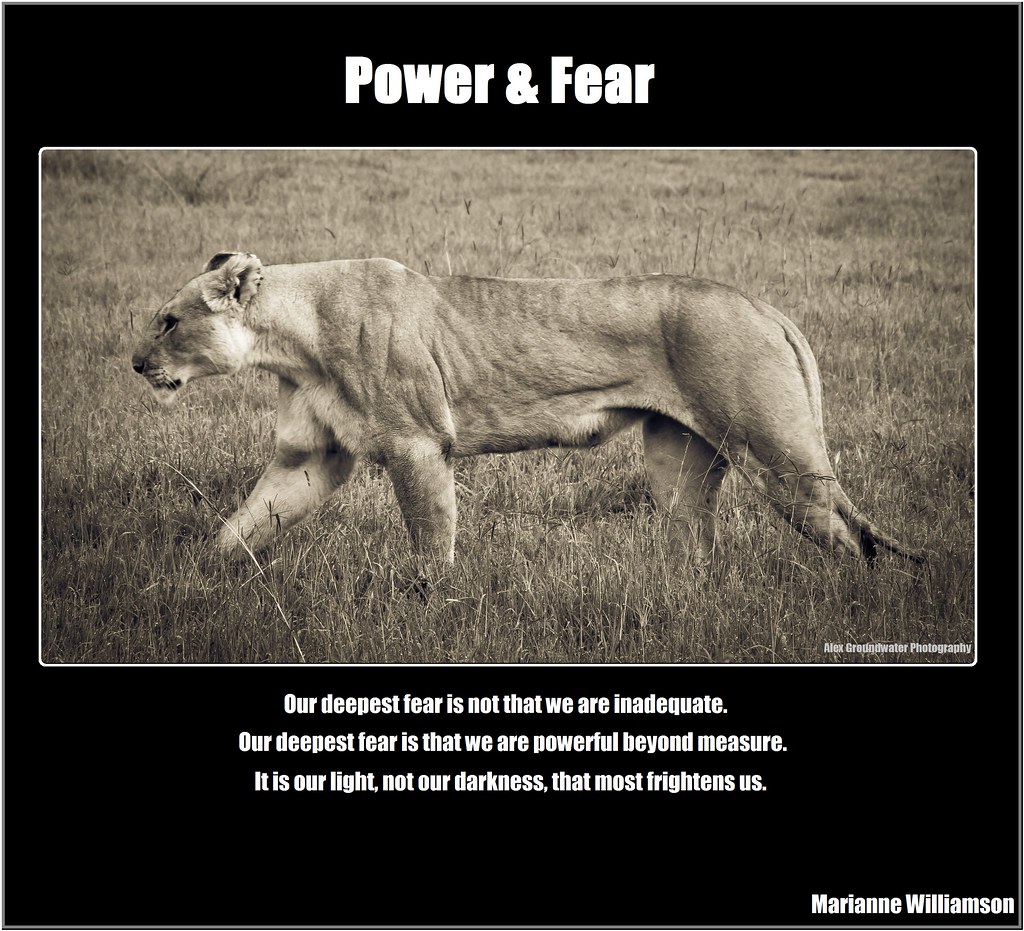Fear is a powerful emotion that can hold us back in so many ways. Whether it’s a fear of spiders, heights, or public speaking, phobias can be debilitating and limit our ability to live life to the fullest. While there are many ways to address these fears, one method that is gaining popularity is hypnotherapy. But what exactly is hypnotherapy and how does it work? In this post, we’ll explore the power of hypnotherapy for phobias and how it can help you overcome your fears. So if you’re tired of living in fear, keep reading to learn more!

Understanding Phobias: What Causes Them and How They Affect Your Life
Phobias are intense and irrational fears that can interfere with daily life. They stem from a variety of causes, such as traumatic experiences or learned behaviors passed down through generations. Phobias come in many forms- some common ones include arachnophobia (fear of spiders), acrophobia (fear of heights), and claustrophobia (fear of enclosed spaces). Often, phobias lead individuals to avoid situations altogether, causing further distress and anxiety. People may even experience physical symptoms like trembling, sweating, or heart palpitations when confronted with their fear. Fortunately, hypnotherapy for phobias is proving to be a successful intervention for those looking to overcome their anxieties in an effective way by safely relaxing the mind and guiding patients into developing new coping mechanisms that gives them control over it instead of being controlled by fear itself.
The Benefits of Hypnotherapy for Phobias: How It Works and What to Expect
Hypnotherapy for phobias is a powerful tool that can help you overcome your fears and live a more fulfilling life. During a hypnotherapy session, a trained professional will guide you into a state of deep relaxation and heightened awareness. From there, they will use positive suggestions and visualization techniques to help you reframe your thoughts and emotions around your phobia.
One of the key benefits of hypnotherapy is that it allows you to access your subconscious mind, where many of our deepest fears and beliefs reside. By addressing these underlying issues, hypnotherapy can help you break free from the cycle of anxiety and avoidance that often accompanies phobias.
It’s important to note that hypnotherapy is not a quick fix. It typically requires several sessions to see lasting results, and it works best when combined with other forms of therapy such as cognitive-behavioral therapy (CBT) or exposure therapy. However, for those who are willing to put in the time and effort, hypnotherapy can be an incredibly effective way to overcome even the most debilitating phobias.

Finding the Right Hypnotherapist: Tips for Choosing a Professional You Can Trust
When it comes to finding the right hypnotherapist for your phobia, it’s important to do your research and choose a professional you can trust. Look for a hypnotherapist who specializes in treating phobias and has experience working with clients who have similar fears to yours. Credentials are also important, so make sure the hypnotherapist you choose is licensed and certified.
It’s also a good idea to schedule a consultation with the hypnotherapist before committing to treatment. This will give you an opportunity to ask questions, discuss your concerns, and get a sense of whether or not you feel comfortable working with them. Cost is another factor to consider, as hypnotherapy sessions can be expensive and may not be covered by insurance.
Ultimately, the most important thing is to find a hypnotherapist who makes you feel safe and supported throughout the treatment process. With the right professional by your side, you can overcome your phobia and start living a more fulfilling life.
The Role of Counselling in Overcoming Phobias: Why Support Is Key to Success
Support is an essential component of overcoming phobias, and counseling can play a vital role in providing it. A trained counselor can help you identify the root causes of your fears and develop coping strategies to manage them. They can also work with you to set achievable goals and monitor your progress over time. When choosing a counselor, look for someone who has experience working with phobias and uses evidence-based techniques. Cognitive-behavioral therapy (CBT) is a common approach that has been shown to be effective in treating phobias. It involves identifying negative thought patterns and replacing them with more positive ones. Some counselors may also incorporate hypnotherapy into their treatment plans, which can help you access your subconscious mind and reframe your thoughts about fear. With the right support, you can overcome your phobias and live a more fulfilling life.
Exploring Your Fears: How to Identify and Confront Your Phobias Head-On
Identifying your phobias is the first step towards overcoming them. Start by making a list of situations or objects that trigger intense fear in you, and rate each one on a scale of 1 to 10 based on how anxious it makes you feel. You can then prioritize your list and start with the least anxiety-provoking item.
As you confront your fears, take note of any physical sensations or negative thoughts that arise, as this will help you challenge these reactions later on. It’s important to approach each situation gradually and with compassion for yourself, recognizing that facing your fears can be difficult but ultimately rewarding.
By combining hypnotherapy with exposure therapy, you can desensitize yourself to triggering stimuli while working through underlying beliefs and emotions associated with your phobia. Your hypnotherapist may also teach visualization techniques or use positive affirmations during sessions to reinforce feelings of calm and safety in response to formerly frightening scenarios.

Techniques for Managing Anxiety: Coping Strategies That Complement Hypnotherapy
The Science of Hypnotherapy: How It Works for Phobias
Hypnotherapy works by accessing the subconscious mind and rewiring negative thought patterns associated with phobias. Through relaxation techniques and guided visualization, hypnotherapy can help individuals develop a sense of control over their fears. The process can also help to reduce anxiety and promote a sense of calmness, making it easier to confront phobias in real-life situations. Key phrases to remember during hypnotherapy for phobias include “positive reinforcement” and “self-empowerment.” By reinforcing positive thoughts and feelings, individuals can gain the confidence they need to overcome their fears and live a more fulfilling life.
Building a Strong Foundation: Combining Hypnotherapy with Other Anxiety Coping Strategies
While hypnotherapy is an effective treatment for phobias, it can also be beneficial to combine it with other coping strategies. These may include relaxation techniques such as deep breathing or meditation, exercise, and cognitive-behavioral therapy (CBT). Additionally, making lifestyle changes like getting enough sleep and avoiding caffeine or alcohol can help reduce anxiety. It’s important to remember that finding the right combination of techniques may take time and experimentation. Working closely with your hypnotherapist and mental health professional can help you develop a strong foundation for managing anxiety in the long-term.
Customized Treatment Plans: Tailoring Hypnotherapy to Individual Phobia Triggers
Customized treatment plans are essential for the success of hypnotherapy for phobias. Each individual has unique triggers that elicit fear and anxiety responses, and a personalized approach is necessary to address these specific concerns. Through careful evaluation of your fears, a skilled hypnotherapist can develop tailored techniques to help you manage both short-term symptoms and long-term anxieties related to phobias. These customized treatment plans may involve relaxation exercises, desensitization techniques, cognitive-behavioral therapy (CBT), or other complementary strategies designed to complement hypnotherapy. By creating an individualized plan that caters to your specific needs, you can enhance the effectiveness of treatment while minimizing any potential side effects or setbacks.
Breaking the Cycle of Fear and Anxiety with Hypnotherapy and Mindfulness
Hypnotherapy for phobias can be a powerful tool in overcoming anxiety, but it’s important to complement it with other coping strategies. One such strategy is mindfulness, which involves focusing your attention on the present moment and accepting any anxious thoughts or feelings without judgment. By practicing mindfulness regularly, you can learn to break the cycle of fear and anxiety that often accompanies phobias. Combining hypnotherapy with mindfulness techniques can help you reprogram negative thought patterns and respond more calmly to triggers that once caused intense fear or panic. With consistent practice, these coping strategies can significantly improve your overall well-being and quality of life.

Real-Life Success Stories: Inspiring Examples of People Who Overcame Their Phobias
From Terrified to Triumphant: The Story of a Woman Who Overcame Her Fear of Flying with Hypnotherapy
Carla had always been terrified of flying, which made her job as a sales executive increasingly difficult. She knew that she needed to overcome her phobia if she wanted to advance in her career and enjoy the benefits of traveling for work. After researching options, she decided to try hypnotherapy for phobias.
Under the guidance of a skilled hypnotherapist who specialized in aviation fears, Carla learned how to manage her emotions and reframe negative thoughts about flying. Through a series of sessions that included guided visualization exercises and deep relaxation techniques, Carla gradually overcame her fear.
Now, she not only travels frequently for work with confidence but has also started taking pleasure trips with friends and family without any reservations. Thanks to hypnotherapy, Carla conquered a lifelong fear and gained newfound freedom.
Conquering Claustrophobia: A Man’s Journey Through Hypnotherapy and Beyond
One man’s fear of tight spaces, or claustrophobia, made it difficult for him to travel on planes or use elevators. However, he was determined to overcome this phobia and sought out the help of a hypnotherapist. Through several sessions of hypnotherapy focusing on relaxation and visualization techniques, he was able to confront his fears and find a sense of calm in situations that used to cause panic. With ongoing support from his therapist and the development of coping strategies such as deep breathing exercises, he has been able to fly comfortably and take elevators without anxiety. Hypnotherapy provided him with the tools necessary for overcoming his claustrophobia, allowing him greater freedom in life.
Breaking Free from the Grip of Social Anxiety: How One Person Used Hypnotherapy to Regain Control
When social anxiety took hold of Jane’s life, she felt trapped. Simple tasks like going to the grocery store or attending social events seemed impossible. But after trying various therapies with little success, she turned to hypnotherapy for phobias. During her hypnotherapy sessions, Jane learned how to identify and challenge the negative thought patterns that were fueling her anxiety. She also gained valuable coping strategies for managing situations that triggered her phobia. With time and practice, Jane was able to break free from the grip of social anxiety and regain control over her life.
“The Power Within: An Inspiring Account of Overcoming Agoraphobia with the Help of Hypnotherapy”.
“The Power Within: An Inspiring Account of Overcoming Agoraphobia with the Help of Hypnotherapy”
After years of struggling with agoraphobia, Sarah was desperate for a solution. She had tried countless therapies and medications, but nothing seemed to work. That’s when she decided to give hypnotherapy a try.
During her sessions, Sarah learned to tap into the power within herself to confront her fears head-on. With the guidance of her hypnotherapist, she was able to reframe her thoughts and beliefs about her phobia. Over time, she found herself feeling more confident and in control.
Today, Sarah is living a fear-free life and is grateful for the transformative power of hypnotherapy. She encourages others struggling with phobias to seek out professional help and trust in their own inner strength.

Common Misconceptions About Hypnotherapy: Separating Fact from Fiction
Hypnotherapy for phobias is often misunderstood, with many people believing it to be a form of mind control or manipulation. However, this couldn’t be further from the truth. Hypnotherapy is a safe and effective way to address deep-seated fears and anxieties, helping individuals to overcome their phobias and live a more fulfilling life.
One common misconception about hypnotherapy is that it involves being put into a trance-like state where you lose control of your thoughts and actions. In reality, hypnotherapy is simply a relaxed state of mind where you are more open to suggestion and able to access your subconscious mind.
Another myth surrounding hypnotherapy is that it only works for certain types of people or phobias. The truth is that hypnotherapy can be effective for anyone, regardless of their age, gender, or background. It can also be used to treat a wide range of phobias, from fear of flying to social anxiety.
If you’re considering hypnotherapy for your phobia, it’s important to find a qualified and experienced hypnotherapist who can guide you through the process. With the right support and guidance, hypnotherapy can help you overcome your fears and live the life you deserve.
Maintaining Your Progress: Tips for Staying Fear-Free After Hypnotherapy Treatment
Staying Fear-Free after hypnotherapy treatment requires ongoing effort and commitment. One important strategy is to practice self-care regularly, such as getting enough sleep, eating a healthy diet, and engaging in physical activity. It’s also important to continue using the coping strategies learned during hypnotherapy sessions, such as deep breathing or visualization techniques. Regular follow-up appointments with your hypnotherapist can help reinforce positive changes and address any new challenges that arise. Additionally, joining a support group or seeking out other forms of social support can provide ongoing encouragement and motivation. Remember that overcoming phobias is a journey, and setbacks may occur. However, with continued effort and the right resources, it’s possible to maintain your progress and live a fear-free life.
In conclusion, hypnotherapy for phobias can be a life-changing experience for those who struggle with overwhelming fears. By understanding the root causes of phobias and seeking the support of a trusted hypnotherapist and counselor, individuals can confront their fears head-on and learn to manage their anxiety in healthy ways. While there may be misconceptions about hypnotherapy, the benefits are clear: real-life success stories show that it is possible to overcome even the most debilitating phobias with the right tools and guidance. By maintaining progress through ongoing self-care and support, individuals can continue to live fear-free and enjoy all that life has to offer.
Questions & Answers
Who can benefit from hypnotherapy for phobias?
Anyone who has a phobia can benefit from hypnotherapy.
What is hypnotherapy for phobias?
Hypnotherapy for phobias is a type of therapy that uses hypnosis to treat phobias.
How does hypnotherapy for phobias work?
Hypnotherapy for phobias works by accessing the subconscious mind to change the way a person responds to a phobia.
What if I’m afraid of being hypnotized?
Hypnotherapy is a safe and natural process that cannot make you do anything against your will.
How long does hypnotherapy for phobias take?
The length of treatment varies depending on the severity of the phobia, but typically ranges from 3-6 sessions.
What if hypnotherapy for phobias doesn’t work for me?
While hypnotherapy has a high success rate, it may not work for everyone. Other therapy options can be explored.
